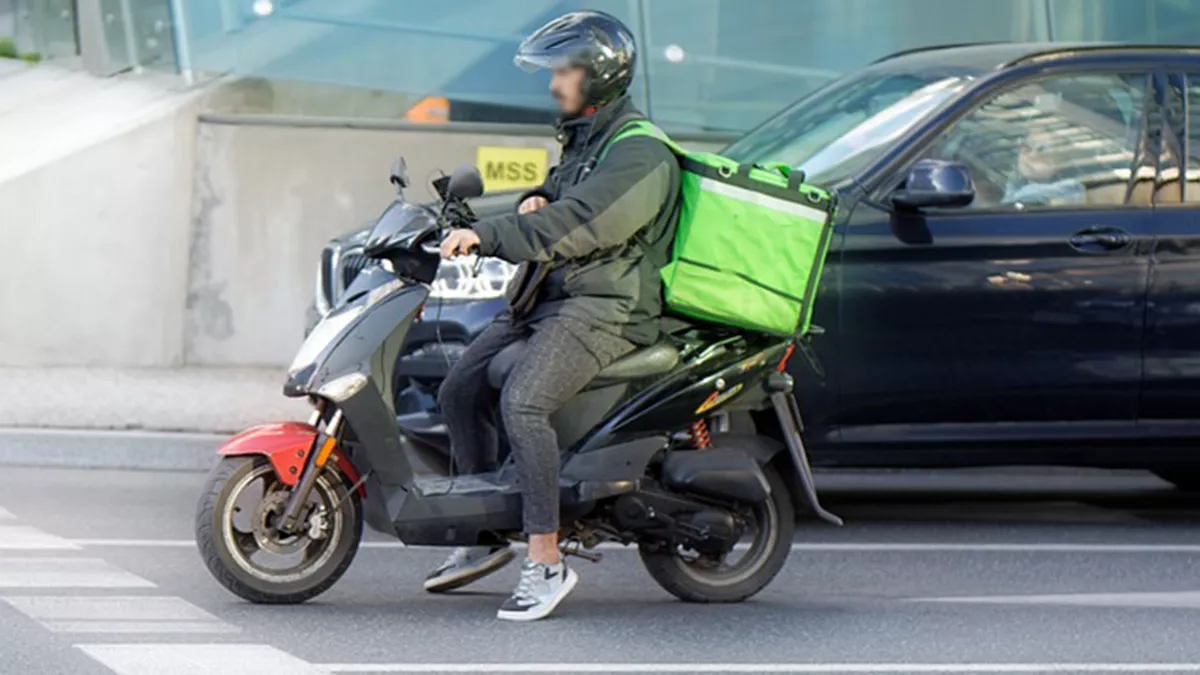Delivery bike riders in Abu Dhabi will only be permitted to use the right lane on roads with speed limits of 100 km/h and above
20 Jun 2023
News
In Abu Dhabi, amid a plethora of steps to lessen accidents and for the welfare of motorcyclists, the local authorities have stated that delivery bike riders would only be allowed to use the right lane on highways with speed restrictions of 100 km/h and higher. According to the new regulations, motorcycles cannot use the fast lanes, which are the left-most lanes on highways and motorways with a speed limit of 100 km/h or higher. The majority of the city's road network has a speed limit between 60 and 100 km/h. Motorcycle riders can only use the two tracks on the right side of three- and four-lane roads with speed restrictions of 100 km/h or above. On a 5-lane road, they can also use three of the tracks from the right side.
This extensive plan to improve traffic safety for delivery motorbike riders was introduced by the Joint Committee for Traffic Safety in Abu Dhabi, which is chaired by the Department of Municipalities and Transport and includes the Integrated Transport Centre, the General Command of the Abu Dhabi Police and the Department of Health. The committee remarked that by reducing the risky driving of delivery motorbike riders, the decision is consistent with the framework intended to control traffic flow on highways and maintain a high degree of safety for all road users. This involves driving too fast—especially on congested highways and roads—and being oblivious to other vehicles, signs, and directions. In addition to driving on the wrong side of the road, turning and lane drifting are also indicated by abrupt lane changes and improper use of turn signals.
Numerous processes, legislative decisions, and traffic and safety efforts are part of the strategy to increase the traffic safety of motorbike delivery riders. These actions are intended to raise the level of work quality and traffic safety among these riders. By improving the quality of training, education, and certification for drivers and motorcycle riders employed in the delivery sector, the initiative aims to forge partnerships with businesses in that industry.
In addition to implementing an internship plan for supervisors from various delivery businesses operating in Abu Dhabi, the ITC has devised a training course for delivery motorcycle riders. In response, the supervisors have begun planning internal training sessions for their drivers. Drivers will take a written exam at the conclusion of each module to demonstrate their readiness to work in the delivery industry. Drivers must earn certificates of good conduct, which must be updated yearly, before applying for a professional licence. The ITC will oversee the examination and certification procedure.
Along with creating specialised parking places for delivery bikes, the proposal calls for 200 parking spaces in Al Ain and over 2,800 in Abu Dhabi. There will also be a number of programmes during the summer targeted at enhancing the lives of delivery bike drivers and reducing the heat by offering them permanent rest stations in strategically placed locations, the first of which will be introduced in Abu Dhabi. Six buses designated as temporary rest breaks for delivery drivers in Abu Dhabi City, Khalifa City, Mohamed bin Zayed City, Shakhbout City, and the Shahama region have received parking licences from the ITC.
The strategy is a component of a larger integrated effort that aims to lower the number of traffic incidents that result in worker fatalities and injuries each year by consistently raising the standards and behaviours that delivery drivers in this industry adopt.
The strategy was implemented in response to a number of regional studies that aim to better understand the factors that contribute to traffic collisions between motorists and bikes in this area. This is done in conjunction with assessments of the present evaluation and training requirements for drivers seeking for professional licences in Abu Dhabi, which results in the introduction of a comprehensive, high-quality plan that is implemented in phases.
The plan aims to test and implement contemporary traffic-control methods and regulations, as well as intensify training and traffic awareness-raising programmes and campaigns through social media, spread a culture of safe driving through media platforms, organise lectures to improve communication with various segments of society, and urge road users to obey traffic laws and regulations to ensure the safety of national property, which in turn achieves road traffic safety.
